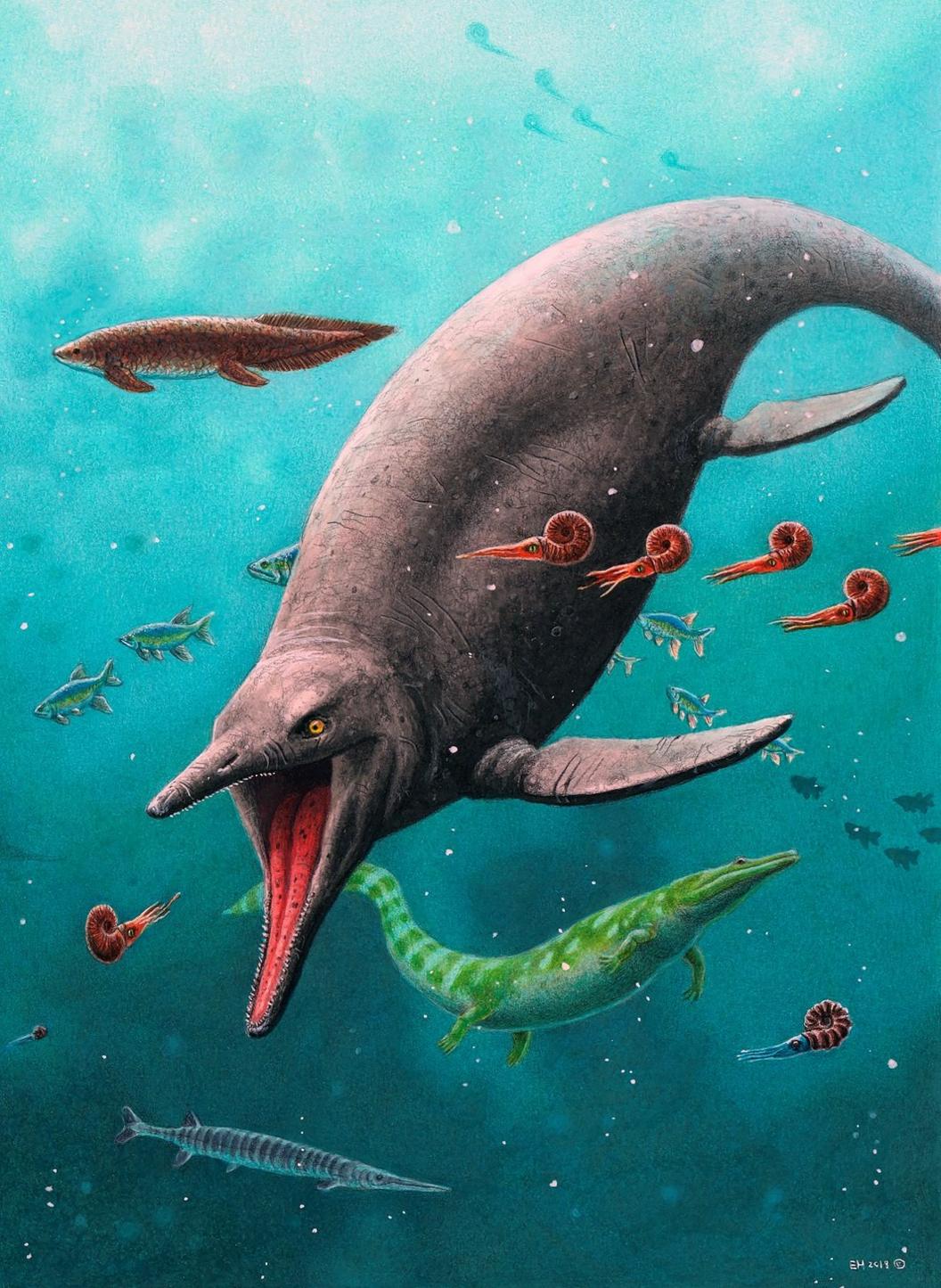The oldest ichthyosaur fossil ever has been discovered
- Published
- comments

The oldest ichthyosaur is believed to have lived more than 250 million years ago
Have you ever heard of an ichthyosaur? The marine reptile lived 250 million years ago during the age of the dinosaurs.
The animals were huge in size, with some reaching up to 21 metres long.
Up until now, the origins of the ichthyosaur have been a bit of a mystery.
However, fossils discovered in Norway's Arctic island of Spitsbergen are shedding some light on the reptiles.
Researchers found remains of the earliest-known ichthyosaur, which lived around two million years after Earth's worst mass extinction 252 million years ago. Known as the Permian Period, around 90% of the planet's species were wiped out at this time.
Until this most recent discovery, the oldest-known member of the ichthyosaur lineage was a 16-inch-long (40-cm-long) creature called Cartorhynchus that lived 248 million years ago in China.
This computer generated image shows the internal bone structure of the vertebrae from the earliest-known ichthyosaur
Like whales and other reptile species found in Earth's oceans, ichthyosaurs are believed to have evolved from ancestors that once walked on land and later became sea animals.
The researchers had previously thought any ichthyosaurs which lived around 250 million years ago would have been a physical form closer to its ancestors which once lived on land.
Many ichthyosaurs looked like dolphins, except with vertical rather than horizontal tail flukes. Others resembled large whales.
The fossils were discovered in Spitsbergen in Norway
However, the fossils discovered, which consist of 11 vertebrae and 15 bone fragments, suggest ichthyosaurs evolved much earlier than previously thought, possibly even before the world's worst mass extinction 250 million years ago.
In light of this discovery, the marine reptile may have existed up to 20 million years before the mass extinction event, according to one of the researchers involved in the find.
- Published28 April 2022
- Published23 April 2019
- Published2 December 2021
